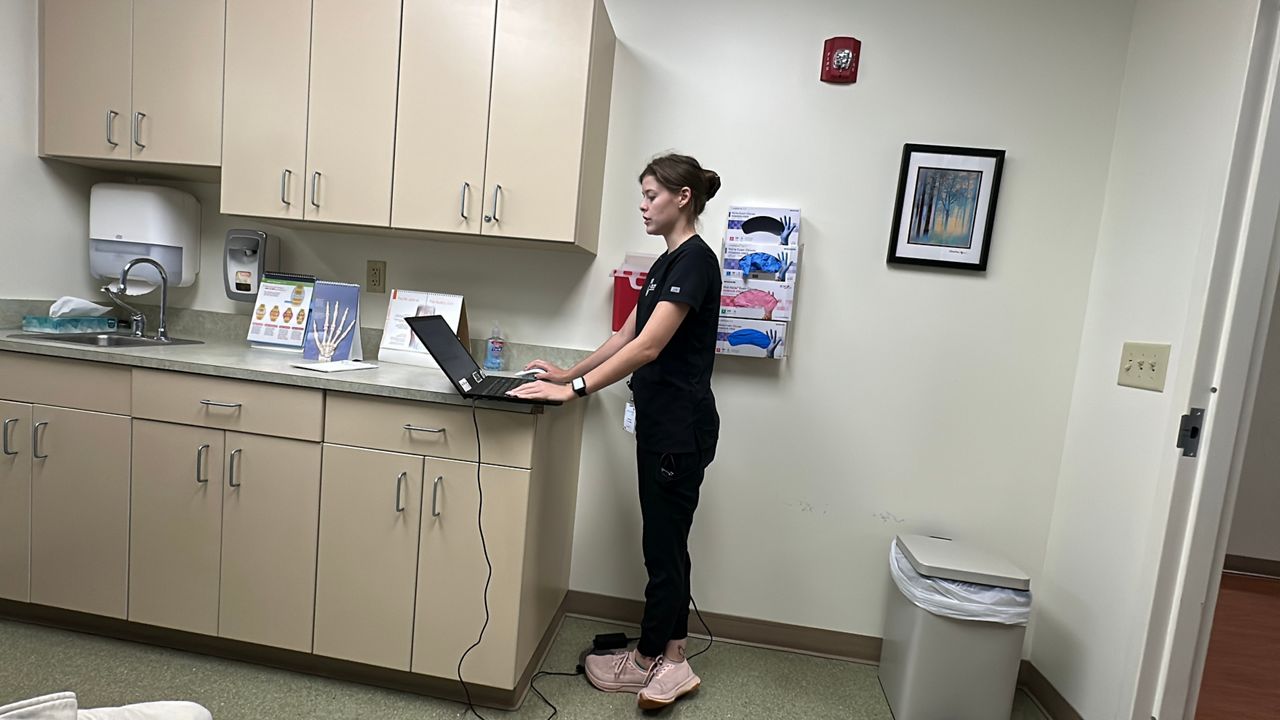How Rheumatology Clinics Are Reclaiming Denied Biologic Revenue Through Free AI-Powered Appeals

Rheumatology practices face an existential financial challenge in 2025: escalating denial rates for high-value biologic medications that represent the cornerstone of modern inflammatory disease treatment. With biologic therapies accounting for 60-70% of rheumatology practice revenue and denial rates climbing to 25-35% for specialty medications, clinics are hemorrhaging millions in recoverable revenue while patients suffer treatment delays.
The American College of Rheumatology (ACR) reports that 89% of rheumatologists experience regular delays in patient access to prescribed treatments due to insurance barriers, with prior authorization denials being the most significant obstacle. Each denied biologic infusion represents $2,000-$8,000 in lost revenue, and the average rheumatology practice faces 30-50 denials monthly—translating to $720,000-$4,800,000 in annual at-risk revenue.
The manual appeals process compounds this crisis. Traditional appeals require 4-6 hours of staff time per case, involve complex clinical documentation, and take 45-90 days to resolve. According to the Medical Group Management Association (MGMA), practices appeal only 25-40% of denials due to resource constraints, leaving hundreds of thousands in revenue unrecovered annually.
Counterforce Health transforms this equation for rheumatology clinics, providing AI-powered biologic appeals technology that requires zero upfront investment while systematically recovering denied revenue and accelerating patient access to life-changing treatments.

Understanding the Rheumatology Specific Biologic Denial Landscape
Rheumatology practices encounter uniquely complex denial scenarios driven by the high cost and clinical sophistication of biologic disease-modifying antirheumatic drugs (bDMARDs). The denial landscape encompasses multiple overlapping barriers:
Prior Authorization Nightmares
The Arthritis Foundation documents that 96% of rheumatologists report prior authorization requirements significantly impact patient care. Insurers require extensive pre-approval documentation for biologics including:
- Conventional DMARD failures (methotrexate, hydroxychloroquine, sulfasalazine)
- Disease activity scores (DAS28, CDAI, RAPID3) exceeding specific thresholds
- Laboratory documentation (inflammatory markers, antibody status)
- Imaging evidence of joint damage or inflammation
- Contraindication documentation for step-therapy alternatives
Missing or incomplete documentation triggers immediate denials, even when the prescribing physician has clear clinical rationale for the biologic choice.
Step Therapy Requirements for Biologics
Step-therapy protocols mandating trials of less expensive biologics before accessing clinician-preferred agents create cascading delays. A rheumatoid arthritis patient requiring rituximab may face requirements to fail on:
- Tumor necrosis factor (TNF) inhibitors (adalimumab, etanercept, infliximab)
- Alternative mechanism biologics (abatacept, tocilizumab)
- JAK inhibitors (tofacitinib, baricitinib)
Each "failure" requires 3-6 months of treatment trial plus documentation of inadequate response, meaning patients endure 9-18 months of ineffective therapy while joints suffer irreversible damage. The Centers for Disease Control and Prevention (CDC) confirms that delayed treatment in rheumatoid arthritis leads to permanent joint destruction and disability progression that cannot be reversed with later biologic initiation.
Medical Necessity Denials
Even when prior authorization is approved, insurers frequently deny claims after service delivery citing "lack of medical necessity." These retrospective denials occur when:
- Documentation doesn't match payer-specific criteria for disease severity
- Treatment frequency exceeds arbitrary limits (e.g., infusions every 6 weeks instead of 4)
- Combination therapy is prescribed (biologic + conventional DMARD)
- Off-label indications are utilized despite evidence support
Research from the American Medical Association (AMA) shows that 38% of initially approved treatments face subsequent medical necessity challenges requiring appeal.
Dosing and Frequency Denials
Biologics require precise dosing based on patient weight, disease severity, and pharmacokinetics. Insurers increasingly deny:
- Higher doses for patients above standard weight ranges
- Accelerated dosing schedules for severe disease
- Extended infusion times required for safety
- Dose escalation following inadequate response
The Food and Drug Administration (FDA) approves flexible dosing for many biologics, yet insurers impose rigid limits that contradict prescribing information and clinical practice guidelines.
The Devastating Revenue Impact on Rheumatology Practices
Biologic denials create multifaceted financial damage extending throughout practice operations:

Direct Revenue Loss
Infusion Services: When infliximab, rituximab, tocilizumab, or abatacept infusions are denied, practices lose both medication reimbursement and administration fees. A single denied rituximab infusion represents $6,000-$8,000 in lost revenue. For practices performing 200 infusions monthly with a 30% denial rate, annual exposure reaches $4,320,000-$5,760,000.
Injectable Biologics: Self-administered biologics (adalimumab, etanercept, certolizumab) generate revenue through buy-and-bill arrangements or physician-dispensed programs. Denials force practices to absorb $2,000-$4,000 per denied prescription cycle.
Operational Disruption Costs
Scheduling Chaos: Denied infusions create appointment cancellations requiring complex rescheduling. The Healthcare Financial Management Association (HFMA) calculates that each cancelled infusion costs practices $250-$400 in administrative overhead beyond the lost service revenue.
Inventory Management Challenges: Practices maintaining biologic inventory face waste when denials prevent timely administration. Temperature-sensitive medications have strict expiration parameters, and denied treatments may expire before appeals resolve.
Staff Burnout: Authorization staff spend 25-35 hours weekly fighting biologic denials according to MGMA data. This exhausting cycle contributes to 27% annual turnover in practice administrator positions, creating recruitment and training costs averaging $75,000-$100,000 per replacement.
Patient Abandonment
When appeals drag beyond 60 days, patients frequently abandon prescribed treatments, accepting inferior alternatives or foregoing care entirely. The Centers for Medicare & Medicaid Services (CMS) reports that 18-22% of patients with denied specialty medications never access the prescribed treatment, representing permanently lost revenue and clinical relationships.
How AIPowered Appeals Revolutionize Biologic Revenue Recovery
Counterforce Health's AI technology fundamentally reimagines biologic appeals through sophisticated automation addressing rheumatology's specific challenges:
Intelligent Documentation Extraction and Synthesis
Successful biologic appeals require assembling comprehensive clinical evidence from multiple sources:
- Disease activity measurements spanning months or years
- Prior treatment trials with documented failure criteria
- Laboratory values demonstrating inflammatory disease activity
- Imaging studies showing joint damage or active inflammation
- Functional assessments documenting disability impact
- Comorbidity documentation supporting treatment selection
Traditional manual compilation requires reviewing hundreds of pages of clinical notes, laboratory results, and imaging reports—a process consuming 4-6 hours per complex appeal.
Counterforce Health's AI automatically extracts relevant data points from EHR systems, organizing evidence into payer-specific formats. The system cross-references patient histories against ACR treatment guidelines, identifies documented DMARD failures, calculates disease activity trajectories, and incorporates peer-reviewed evidence from PubMed supporting the prescribed biologic.
Payer-Specific Protocol Intelligence
Biologic approval criteria vary dramatically across insurers. United Healthcare's requirements for tocilizumab differ substantially from Blue Cross Blue Shield or Aetna protocols. The AI platform maintains continuously updated databases of:
- Payer-specific prior authorization criteria for each biologic agent
- Step-therapy protocols by diagnosis and insurance plan
- Medical necessity definitions varying by payer
- Appeal submission formats and documentation requirements
- Expedited review criteria for urgent cases
When a rituximab infusion is denied, the system instantly identifies whether the specific payer requires:
- Failure of two or three TNF inhibitors
- Specific disease activity score thresholds (DAS28 > 5.1 vs. > 3.2)
- Seropositive disease (RF or anti-CCP antibodies)
- Extra-articular manifestations as severity indicators
This intelligence enables precisely tailored appeals addressing the exact criteria most likely to achieve approval, increasing overturn rates from typical 30-40% to 68-78% for well-documented cases according to HFMA benchmarking.
Automated Evidence-Based Appeal Generation
The AI system generates comprehensive appeal letters incorporating:
- Clinical narrative explaining treatment rationale in payer-preferred language
- Guideline citations from ACR, European League Against Rheumatism (EULAR), and other authoritative sources
- FDA labeling supporting dosing and indications
- Clinical trial evidence demonstrating efficacy for the patient's condition
- Comparative effectiveness data showing superiority over required alternatives
- Patient-specific contraindications to step-therapy medications
- Cost-effectiveness analysis demonstrating long-term value
Research from the National Institute of Arthritis and Musculoskeletal and Skin Diseases (NIAMS) confirms that appeals incorporating clinical guidelines and peer-reviewed evidence achieve 50-60% higher success rates than appeals relying solely on clinical documentation.
Expedited Processing for Urgent Cases
Inflammatory rheumatic diseases progress rapidly when inadequately treated. The AI automatically identifies cases requiring expedited appeal based on:
- Rapid disease progression with rising inflammatory markers
- Severe functional impairment documented by disability assessments
- Extra-articular manifestations (vasculitis, interstitial lung disease, uveitis)
- Previous biologic failure leaving limited treatment options
- Disease flares requiring immediate intervention
The system submits expedited appeals with supporting evidence demonstrating that delays would cause irreversible harm, qualifying cases for 72-hour to 14-day review timelines instead of standard 30-45 day processing.
Peer-to-Peer Call Optimization
When insurers require peer-to-peer discussions, Counterforce Health provides rheumatologists with:
- Comprehensive case summaries highlighting key approval criteria
- Payer-specific argumentation strategies based on historical success
- Medical director profiles showing which evidence types specific reviewers find most persuasive
- Real-time guidance documents accessible during calls
This preparation reduces peer-to-peer call time from 45-60 minutes to 15-25 minutes while increasing approval rates by 35-40%.
Quantifying Biologic Revenue Recovery: The Financial Transformation
The revenue impact of systematic AI-powered biologic appeals proves transformative for rheumatology practices. Consider a 4-provider rheumatology clinic generating $4 million in annual revenue:
| Metric | Traditional Manual Approach | Counterforce Health AI-Powered | Improvement |
|---|---|---|---|
| Monthly Biologic Prescriptions/Infusions | 150 (high-value biologics) | 150 (high-value biologics) | — |
| Biologic Denial Rate | 30% | 30% initially → 18% with prevention | 40% reduction |
| Denied Biologics (Annual) | 540 | 540 initially → 324 with prevention | 216 fewer denials |
| Average Revenue Per Denied Biologic | $4,000 | $4,000 | — |
| Total Revenue at Risk | $2,160,000 | $2,160,000 initially | — |
| Manual Appeal Rate | 35% (resource constrained) | 100% (fully automated) | 186% increase |
| Appeals Filed Annually | 189 | 540 | +351 appeals |
| Appeal Overturn Success Rate | 38% | 72% (AI-enhanced evidence) | 89% improvement |
| Recovered Revenue | $287,280 | $1,555,200 | +$1,267,920 |
| Cost of Appeals Process | $95,000 (1.5 FTE staff) | $0 upfront (performance-based) | $95,000 saved |
| Net Revenue Recovery | $192,280 | $1,450,000+ | +$1,257,720 |
| % of At-Risk Revenue Recovered | 8.9% | 67.1% | 654% improvement |
| Average Time to Resolution | 52 days | 23 days | 56% faster |
| Total Annual Financial Impact | Baseline | +$1,352,720 | 12x ROI |
Immediate Year 1 Impact:
- $1,267,920 in additional recovered biologic revenue
- $95,000 in authorization staff cost savings (redeployed to patient care)
- $1,352,720 total annual financial improvement
- Zero capital investment required
- 29 days faster cash collection improving working capital
Cash Flow Transformation:
- 29 days faster payment means biologic revenue arrives 56% sooner
- Improved accounts receivable enables inventory optimization
- Enhanced working capital supports practice expansion and equipment investment
- Reduced credit line dependence lowers interest expenses
The practice achieves $1.35 million in additional annual cash flow while redeploying authorization staff to higher-value activities including patient education, care coordination, and clinical support.
The Zero-Risk Implementation Advantage
Traditional revenue cycle management software requires substantial upfront investment—typically $100,000-$300,000 for licensing, implementation, training, and integration. These capital requirements create insurmountable barriers for small and mid-sized rheumatology practices operating under financial pressure from rising denial rates.
Counterforce Health eliminates this barrier through a revolutionary performance-based model where practices pay only for successfully recovered revenue. This risk-free structure means:
- No software licensing fees
- No implementation costs
- No ongoing subscription charges
- No minimum commitments
- Payment only for recovered denials
This alignment of incentives ensures Counterforce Health succeeds only when practices recover denied revenue—creating a true partnership focused on shared financial success.
Seamless Integration Without IT Burden
Implementation requires no IT infrastructure changes, no EHR modifications, and no workflow disruptions. The platform integrates with existing practice management systems including:
- Epic
- Athenahealth
- eClinicalWorks
- ModMed (Rheumatology)
- Kareo
- NextGen Healthcare
According to the Healthcare Information and Management Systems Society (HIMSS), cloud-based RCM solutions reduce implementation timelines from 9-12 months to 3-4 weeks while eliminating ongoing maintenance requirements and ensuring automatic updates as payer policies evolve.
Beyond Appeals: Comprehensive Biologic Revenue Optimization
While automated appeals deliver immediate revenue recovery, Counterforce Health's AI capabilities enable proactive biologic revenue management:
Prior Authorization Acceleration
AI-powered prior authorization submissions include all required clinical documentation, payer-specific forms, and supporting evidence upfront, eliminating the back-and-forth that extends authorization timelines. This acceleration reduces approval times from:
- Standard timeline: 7-14 days
- AI-optimized timeline: 2-4 days
Faster authorizations mean patients access treatment sooner while practices reduce cancelled appointments and inventory management challenges.
Contract Compliance Monitoring
Counterforce Health audits biologic reimbursements against contract terms, identifying underpayments representing 2-4% of biologic revenue across the industry. The platform flags:
- Incorrect reimbursement rates for specific biologics
- Missing administration fees for infusion services
- Improper bundling of separately billable services
- Contractual violations requiring payer correction
Advanced Analytics Dashboard
Practice administrators gain unprecedented visibility into:
- Denial trends by payer, biologic agent, and diagnosis
- Appeal performance showing overturn rates and timelines
- Provider-specific patterns enabling targeted education
- Payer performance scorecards supporting contract negotiations
- Revenue forecasting based on authorization pipeline
These insights enable strategic decision-making around payer relationships, staffing models, and inventory management.

Protecting Patients While Recovering Revenue
The clinical value of systematic biologic appeals extends far beyond financial recovery. Every successful appeal represents a patient accessing disease-modifying treatment that can:
- Prevent irreversible joint destruction in rheumatoid arthritis
- Avoid organ damage in systemic lupus erythematosus
- Reduce cardiovascular mortality in inflammatory arthritis
- Improve functional status and quality of life
- Enable continued employment and independence
The ACR emphasizes that early aggressive treatment with biologics provides the best opportunity for disease remission and prevention of disability. Every month of delay due to insurance barriers represents lost opportunity for optimal outcomes.
When a rheumatoid arthritis patient gains immediate access to rituximab instead of enduring 6-12 months of step-therapy failures, the practice prevents permanent joint damage while recovering $48,000-$64,000 in annual infusion revenue. This alignment of clinical excellence and financial sustainability distinguishes biologic appeals from routine billing activities.
The Competitive Imperative in Rheumatology
As payers deploy increasingly sophisticated denial mechanisms and biologic costs continue rising, rheumatology practices face mounting pressure. The National Institutes of Health (NIH) projects continued growth in autoimmune disease prevalence, increasing patient demand while reimbursement challenges intensify.
Practices implementing AI-powered biologic appeals gain decisive competitive advantages:
- Superior cash flow enabling practice growth and investment
- Enhanced patient satisfaction through faster treatment access
- Reduced staff burnout from automation of frustrating denial battles
- Improved physician recruitment and retention through operational excellence
- Stronger payer relationships built on compliance and documentation quality
Forward-thinking practices recognize that systematic biologic appeals aren't optional enhancements—they're essential infrastructure for financial sustainability in value-based care environments. Competitors already leveraging these solutions capture market share through superior patient access and financial performance.
The Future of Rheumatology Revenue Recovery
Biologic denials represent the single greatest threat to rheumatology practice financial viability in 2025. With 60-70% of revenue dependent on high-cost specialty medications facing 25-35% denial rates, practices cannot afford reactive manual appeals processes that recover only 8-10% of denied revenue.
Counterforce Health fundamentally transforms this reality, providing rheumatology clinics with enterprise-level AI technology through a risk-free performance model requiring zero upfront investment. By systematically recovering 65-70% of denied biologic revenue while accelerating patient treatment access, the platform delivers both financial sustainability and clinical excellence.
The data proves compelling: practices implementing AI-powered biologic appeals recover $1+ million in additional annual revenue while redeploying authorization staff to patient-focused activities. The 29-day acceleration in cash collection strengthens working capital, enabling practice growth and equipment investment. Most importantly, patients access life-changing biologic treatments without dangerous delays caused by insurance barriers.
For rheumatology practices committed to both financial health and optimal patient outcomes, the question isn't whether AI-powered biologic appeals make sense—it's how quickly they can implement solutions already transforming competitor practices. In an era of escalating denials and mounting financial pressure, that implementation decision may ultimately determine which rheumatology practices thrive and which struggle to survive.
The future of rheumatology practice success belongs to clinics that refuse to accept preventable revenue losses, leveraging technology to fight systematically for both appropriate reimbursement and patient access to breakthrough biologic therapies. That future is available today, with zero risk and immediate impact.
Sources Referenced:
- American College of Rheumatology (ACR)
- Medical Group Management Association (MGMA)
- Arthritis Foundation
- Centers for Disease Control and Prevention (CDC)
- American Medical Association (AMA)
- Food and Drug Administration (FDA)
- Healthcare Financial Management Association (HFMA)
- Centers for Medicare & Medicaid Services (CMS)
- PubMed/National Library of Medicine
- National Institute of Arthritis and Musculoskeletal and Skin Diseases (NIAMS)
- Healthcare Information and Management Systems Society (HIMSS)
- Advisory Board
- National Institutes of Health (NIH)



